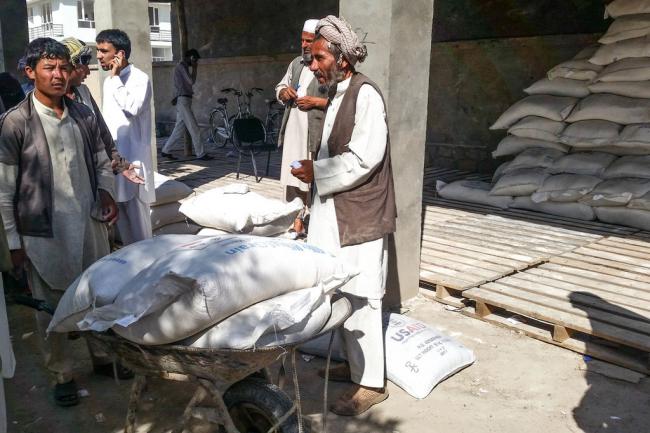
Nearly 1,000 Afghans fleeing their homes daily, warns UN relief wing
According to a report compiled in April and newly released by the UN Office for the Coordination of Humanitarian Affairs (OCHA), the main humanitarian story of the year is the very large number of people fleeing from their homes to save their lives, with about 118,000 on the move in the first four months of the year.
Specifically in Kunduz, OCHA said springtime in the north eastern province “has been tragically filled with conflict and suffering,” leading to an extraordinary displacement of more than 22,400 people. Civilians appear to be caught in the cross-fire between a “spring offensive” launched by non-State actors and subsequent countermeasures put in motion by Government forces.
Fleeing for their lives, 14, 000 people were forced from Kunduz city to remote areas where the conflict is most active. The insecure environment and access constraints created severe challenges in the delivery of humanitarian assistance.
As the violence continued after mid-April, families were forced to flee and seek safety with family members and neighbours who opened their doors to offer a haven in the midst of chaos. “When we conducted the initial needs assessments, as many as six families were living in one house,” reported Syed Zaheer, OCHA Humanitarian Affairs Officer, who helped lead the joint assessment mission.
The security situation in Kunduz province continued to rapidly deteriorate, OCHA said. And as displacement swelled, aid agencies prioritized urgent humanitarian assistance to the 7,000 displaced people, however in many cases one of the biggest challenges is access to reaching the most vulnerable families in need.
According to the report, as the battle raged on for territorial control in all seven districts of Kunduz province, families were further displaced to more remote and insecure areas where humanitarian agencies continue to struggle to gain access.
Although physical access to displaced families remains a challenge due to IEDs, military operations and road closures, humanitarian agencies managed to deliver much needed food, nutritional support, emergency shelter, non-food items (NFIs) and health care.
“The displaced families in Kunduz have endured repeated suffering – some displaced two and three times – raising their vulnerability,” explained OCHA Head of Sub-Office, Gift Chatora. “We have seen the detrimental consequences when displaced families are inaccessible to humanitarian assistance, children miss out on education, nutrition and basic health care while parents lose their livelihoods and means to provide for their families.”
Photo: OCHA/Mohammad Sadiq Zaheer
Source: www.justearthnews.com
Support Our Journalism
We cannot do without you.. your contribution supports unbiased journalism
IBNS is not driven by any ism- not wokeism, not racism, not skewed secularism, not hyper right-wing or left liberal ideals, nor by any hardline religious beliefs or hyper nationalism. We want to serve you good old objective news, as they are. We do not judge or preach. We let people decide for themselves. We only try to present factual and well-sourced news.







